Neurodiversity
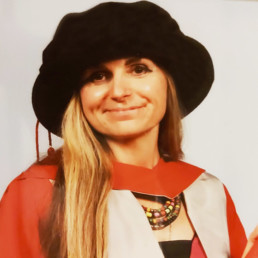
Written by Dr Sarah Chicken
Senior Lecturer in Education and Childhood at UWE, Bristol where she teaches across undergraduate and postgraduate programmes.
I am a senior lecturer in the Department of Education at an English University where I have worked for seventeen years. I also have a diagnosis of dyspraxia. Dyspraxia or Developmental Coordination Disorder (DCD) is a complex neurological condition which affects the messages between the brain and the body impacting on movement and cognition. Instead of a message going from A to B, for someone with dyspraxia, it can take a detour from A to X, Y and Z ( in no particular order) before making the journey back to B. This can be exhausting!
An important issue is that others may not understand how substantial some challenges can be; for example, I have been an educator for decades, teaching students from 3 to 73 across diverse social, political and cultural contexts; I have a PhD and a range of Master’s level qualifications so when I find difficulties filling in forms, driving a car, finding my way around university systems and the world in general, this can seem perplexing to others. However, a ‘spikey’ learning profile, (where there are significant discrepancies between the things that someone is good at and those that they struggle with) is a key feature of a neurodiverse profile. In my own case, psychometric tests indicate a large gap between my verbal reasoning at the one end of the scale and my processing speed and working memory at the other end of the scale.
This often feels like I have a fantastic computer which has been ill-matched with some rather outdated software and I spend a lot of time feeling out of synch. This can impact on my physical coordination (my dancing is legendary for all of the wrong reasons ) and my speech and cognition which sometimes is not quite connected. When I am tired or anxious, I can stumble over words or words can tumble out of my mouth in ‘my incoherent soup’. This anxiety-inducing prospect can lead to remaining quiet in large group situations despite having lots of ideas. On other occasions, I end up talking over the top of people as I can’t quite find the right place to come into a conversation and this can appear impolite.
Many neurodivergent people have issues with the processing of sensory information; whilst I can hear words in busy environments, I am not always sure if I have fully processed the meaning. Harsh lighting is challenging for me and can cause eye disturbances which feel as if I am looking through a kaleidoscope with pieces of the picture all jumbled up. Unfortunately, this is often the case in many parts of my working environment including shared social spaces.
At the same time, I am determined and driven (pardon the pun), whilst it took me 17 years to pass my driving test, I got there in the end! This is because I have limited spatial awareness or depth perception, whilst I can physically see space, I can’t quite ‘feel’ or judge if my car ( or body) can fit. On the odd occasions that I have been brave enough to drive to work, students have found great amusement as I have tried to park my car – I don’t blame them, I need a runway!
To return to my computer analogy, the cognitive pressure of too much multitasking can feel like having too many tabs open at the same time and I start to slow down – now throw into the mix the mismatch between my computer and out- of-date software and there is a danger that I could shut down altogether. Since my diagnosis I realise that this has implications for my work and life and I am far more successful when I can really concentrate on a small range of activities ( I am a details-person) rather than being spread thinly across many.
At the same time, my dyspraxia can be viewed as a gift and a superpower. It offers a unique perspective of the world leading to creative and ‘outside of the box’ thinking when I am in environments where I feel ‘safe’ and valued. I have a good sense of humour; I have to see the funny side of often tripping over and bumping into things and jumbling up my words. Like others with dyspraxia, I have a ‘stick with it ‘attitude, I am solution-focussed, analytical and very empathetic. I am fortunate to be in a job where I can draw on these strengths to design and deliver teaching, learning and research opportunities which engage and inspire and most of all where I am able to celebrate the wonderful range of diversity seen within the human race.
Engaging With Diversity – Giving Pupils a Voice
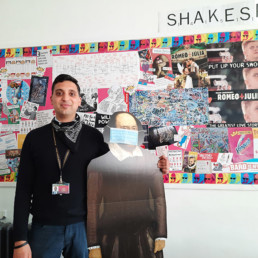
Written by Gaurav Dubay
Head of English at King Edwards VI Handsworth Grammar School for Boys and Evidence Lead in Education.
The need to diversify
In 2010, the then Education Secretary, Michael Gove, announced a number of sweeping educational reforms – particularly in English – where the likes of Byron, Keats and Dickens would firmly be re-rooted and restored to their original veneration within the English educational system. The changes were designed to bring rigour and improve students’ grasp of English Language and Literature. Whilst I firmly welcomed the ambitions, I feared that the texts I loved – ‘To Kill a Mockingbird’, ‘All My Sons’ and ‘Shards of Memory’ – would be relegated to the lower leagues of what I like to call The Reading League, and thus deny countless students access to texts that they could both learn from and relate to.
Since that time, my suspicions have been confirmed by countless reports, and, most recently, The National Literacy Trust concluded that the majority of ethnic minority students do not ‘see themselves in what they read’ (Best et al, 2020). The findings of reports like the one aforementioned, as well as our own internal evidence, meant that we – in a multi-ethnic school – needed to work on developing curriculum diversity. The words of Fletcher (2005) resonated with us where the assertion is made that learners’ voice creates ‘empathetic learning environments that value diversity and multiple perspectives.’ We made the choice, therefore, to put our students at the forefront of the discussion on curriculum diversity.
What did our pupil voice dialogue look like?
MHS (Mentally Healthy Schools) argues pupil voice is an effective mechanism through which we ‘can create meaningful change…better academic outcomes’ and perhaps most importantly facilitates ‘a sense of empowerment and inclusion’. There is a wealth of information we can refer to in order to successfully implement pupil voice. However, we strongly felt that we needed our students to feel a sense of ‘empowerment’ through the process. We, therefore, framed our discussion using the following format:
- Explored, discussed and defined the meaning of diversity.
- Explored what worked well in our curriculum.
- Explored what didn’t work well.
- Develop pragmatic solutions.
Finally, in order to value all voices, students were chosen to contribute through randomised selection.
The outcomes of the discussion:
- Defining diversity – It was clear from the onset that our students believed that the celebration of our unique identities – race, religion and gender – was to feature as part of our definition. However, there was a growing sense, through the process, that uniqueness and equality could not be separated; each unique experience needed to be equally understood and equally valued. To that end, our students phrased our department’s diversity vision as ‘An acceptance, recognition and celebration of our unique identities. Each unique experience – regardless of race, religion, sexuality and the like – are to be celebrated. No voice will be silenced and all voices will be respected.’ Perhaps the most enlightening experience was the unanimous feeling that the word ‘tolerance’ was not to feature as part of the definition.
- WWW – Students strongly agreed that the curriculum, particularly at Key Stage 3, exposed them to diverse voices. One student felt he would have ‘been none the wiser about the tensions traditional African women face had it not have been for The No1 Ladies’ Detective Agency’. Others appreciated the opportunity to discuss topical issues with regards to race through their study of transactional writing in year 11 and ‘Othello’ in Sixth Form.
- HTD – The discussion did, however, expose flaws that need addressing. Whilst the success of English learning lies in the variegating offerings of texts and genres studied, it was strongly felt that the discussion needed to extend beyond the English curriculum and many confirmed the findings of Johnson (2010) who felt that diversity broadens beyond the school curriculum and needs to be part of a school’s ethos. Our pupils also felt more needed to be done to ‘educate’ – not ‘punish’ – those who ‘might get it wrong’.
- Feeding in to our DDP – The findings of our discussion have since been implemented in to our DDP (see https://www.handsworth.bham.sch.uk/curriculum/subjects/english/). It will be our students, however, who will be tasked with evaluating our effectiveness and they, too, will play an important role in successfully building a diverse curriculum that regularly seeks to explore the voices of those who are often marginalised.
- Wider school – following the findings, students will discuss their findings further with the School Council.
What we learnt:
Time! This is perhaps the most important lesson we learnt as a leadership team. Discussions about diversity cannot simply be timetabled and forgotten about. We needed to extend our discussion not once, not twice, but three times (and if we could have discussed more, we would)! There was a lot that needed to be said, digested and explored.
Personally, however, I felt that our students would not come up with solutions that were pragmatic. I was well and truly proven wrong! Solutions were not only pragmatic, but insightful, empathetic and empowering. TP Due argues, ‘Diversity should just be called reality. Your books, your TV shows, your movies, your articles, your curricula need to reflect reality.’ We are not there yet – but we are on a journey to get there.
For further information, please follow us @english_hgs
Personal Twitter handle: @GauravDubay3
Bibliography:
- Best, Clark and Picton, I. (2020). ‘Seeing Yourself in What you Read: Diversity and Children and Young People’s Reading in 2020’. NLT – UK.
- Fletcher, A (2005). Meaningful Student Involvement: Guide to students as partners in school change. Soundout www.soundout.org/MSIGuide.pdf
- Johnson, LS (2010). ‘The Diversity Imperative: Building a culturally responsive school ethos’. Intercultural Education. 14. p 17 – 30.
- Mentally Healthy Schools: https://www.mentallyhealthyschools.org.uk/
Think Equal – Equality Education in Action
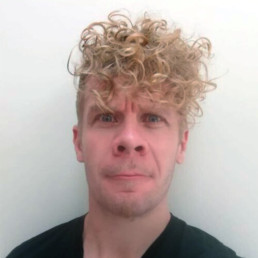
Written by Ben Mearhart
M.Ed. in Educational Leadership and in his 10 years as a senior leader developed practices and curricula which progressed teaching, learning, outcomes and personal development to ‘Outstanding’ levels.
Intent
As a joint-Headteacher of a forward-thinking primary school I was always on the look-out for initiatives which spoke to the heart of what I most value – the children’s actual experience and equipping them for leading rewarding lives. Think Equal’s social and emotional literacy programme achieves this and so much more.
I can’t think of anyone I know who wouldn’t benefit from enhanced social and emotional literacy. From engaging the compassion that it can grow, for ourselves and everyone around us. What do you do when you feel completely lost? When you feel you’ve made a terrible mistake? How do you support yourself or others when they feel this way? How do you treat people as they would like to be treated?
This, to my mind, is the true work of a curriculum, of a school; namely to cultivate an authentic social and emotional literacy which is steeled with a depth and breadth of real world understanding that together can make the world we leave for our children better than the one we inherited.
Implementation
You may of course learn such things through trial and error. Or, to be more certain of success, you can embrace social and emotional literacy as a golden thread of your learning and understanding as a student, of your pedagogy and support as a teacher and of your vision and impact as a leader. The mission, content and execution of Think Equal’s programme achieves this too. Bold claims I know, but treat those seeds of doubt to a quick glance at Think Equal’s Committee of Advisors and Academic Partners to see how this might be possible.
From Understanding the World to Personal, Social and Emotional Development – and all the fertile vertical and horizontal links between and beyond – Think Equal’s programme can instantly enhance your curriculum, pastoral care and ultimately the love and cohesion that unites your school community. And at a time when children’s minds – at their most plastic – can be so ripe to engage with what so many adults, myself included, can find paralysingly-awkward and difficult to negotiate in reality. What is true fairness? How are we different and how are we similar? How do I show you that I genuinely appreciate you as a human being? The programme largely enables these developments through consistently engaging and inspiring stories and activities.
Diverse narratives:
At age- and stage-appropriate levels, the children explore and embrace vital concepts like equality, emotion and race within the comparative safety of the experiences and choices of a beautiful range of characters.
Emotional intelligence in action:
Their discoveries are then reinforced with the help of the programme’s carefully scaffolded and inclusive activities so that they are ready to respond when reality calls.
Impact
And oh the difference! At its most essential, we found that our planning for Personal, Social and Emotional Development for the year was pretty much covered. Done.
More importantly…within weeks we saw elevated levels of kindness and consideration. We saw children often reserved and tentative now emboldened and asserting their values. We saw children who knew themselves and their friends with deeper understanding and confidence, who had normalised the range of emotions we experience but not the negative actions they can drive.
Children who, self-confident and upright, were happier, more engaged, independent and much more likely to approach conflict with courage and solutions(!). The positivity rippled through our staff and to home too. These days there is rightly much talk of a mental health and well-being crisis (pre- and post-Covid 19). In times of joy, sorrow and everything in between I don’t think we can expect more than to ride those waves to the best of our ability. Pursuing the Think Equal programme enhances that ability and not as a reactive solution – a bolt on – but as a pro-active and living, breathing and growing reality.
Using Students Voice to understand Diversity
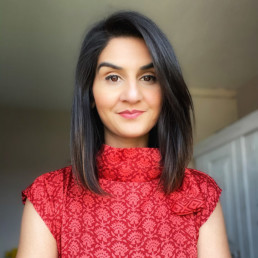
Written by Roma Dhameja
Secondary Vice Principal responsible for Teaching and Learning with a particular passion for Student Voice and teaching students Business, Economics and about Money.
Google ‘What is Diversity’ and you will see it defined as the ‘process of involving people from a range of different social, ethnic, gender, sexuality backgrounds.’ However, the way we often portray it is through a lens of polarisation. White or non-white. Male or Female. We know life is more complex than that. I, as a woman in her 30s of Indian heritage, cannot speak for every woman with that background and in that age bracket. Our experiences vary. It also doesn’t mean I have nothing in common with a middle-aged white man.
This doesn’t mean that we shouldn’t endeavour to ensure diversity in our board rooms/staff body. It means we have to pay closer attention to experiences rather than the way we classify ourselves, and that’s why I want to focus on the element of ‘involving people’ in the above definition. Because unless the communication channels are open, our understanding of unique experiences and similarities will remain stunted.
With this in mind, I have loved conducting student voice activities throughout my teaching career. Our students’ backgrounds affect the way they engage with education. I know this, I have experienced this. At age 4, I joined the British education system with English as my third language and not entirely fluent in it either. Rather than celebrate my trilingual abilities, I was always innately aware that having not mastered English first I was seen to have a disadvantage. This became more apparent as I studied English Literature at A Level and whilst my peers could reference Greek Gods I had a wide variety of Hindu God’s I could refer to with an impressive array of powers but none that were going to make me understand references in the poetry required on the syllabus.
Often this lack of exposure to Western cultural references can be seen as a gap, something to fix and fill, and I understand that. After all, we have to prepare our students to pass exams and wrestle with the demands of the English language. But we also have an opportunity to unpick what they come to the table with.
I recently spoke to a group of students with English as an Additional Language and was in awe at the experiences not only they, but their parents had. One spoke to me about his parents being refugees from Pakistan and how his dad had obtained a degree in the Netherlands, which is where he was born and had then moved to the UK at eight. When I asked him of his experience moving to the UK he spoke about how he was going to one up his dad by making sure he did his A Levels in the UK, degree abroad and then an MA in another country. To him the world was his home, he just needed some time to figure out society in each country. He was a global citizen.
I’d gone to speak to these young people to look at home/school communication. Many of the questions had been asked before.
- Do your parents receive the letters we send home?
- Do they read them?
- Is it ok to send them in English or would you prefer them in a different language?
Yes, Yes English is fine, had been the response.
Digging a little deeper, it became apparent that the students were reading the letters going home to their parents. When asked if they read everything, their initial reaction was yes, of course. When I asked them to translate a paragraph for me in Urdu, it became apparent they would skip some bits. This made the school simplify the language of their home communication further, with students giving feedback.
I learnt a lot that day about the way we communicate with our young people and their parents. I learnt a lot about ensuring that we know who we are writing for. I learnt a lot about how many students are happy to talk about their background if they feel comfortable, and we are willing to listen and celebrate the richness of it.
On another occasion I learnt a lot more about why some of our students from diverse backgrounds were not applying to Oxbridge despite having the grades than I ever would sitting making assumptions. I won’t tell you why because their reasons may not be the same as those of the young people not applying at your school. And that’s what we need to unpick, all of us, through regular, consistent student voice activities. What I did love however is how many of them were making the right choices for them, taking into account their culture and the lifestyle they wanted to lead.
We also need to be careful about the way we interpret student experiences. For instance, students’ parents may not attend parents evenings because they have no experience of the British education system and may send older siblings, uncles or aunts instead. In these instances you can have a very engaged extended family. How do we work with that? The cultural experiences of our young people can be very rich and we have to ensure we are not, at some level judging them as good or bad when they may just be different.
Listening to our students’ voices can teach us so much: what our students value in their homes… what shapes their perspectives… who are their role models… This is all powerful knowledge. It is a two-way gift. Not only does it give us an insight into their world, it also encourages them to talk confidently about their experiences, no matter how different to the status quo they may be.
The False Flag Flying of ‘No Institutional Racism’
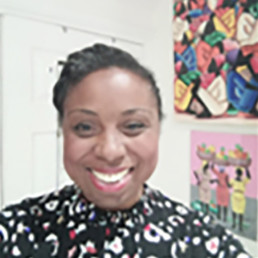
Written by Rachel Clarke
Working with many leaders to improve schools, Rachel is a "passionate, dedicated and inspirational educator, who strives for success with students and educators".
The absence of any acknowledgement of the existence of institutional racism in the UK education system, is a sad indictment of these times. In the context of George Floyd’s trial, the Oprah interview with Harry and Meghan and the glaring difference in response to Sarah Everard’s murder compared to Bibaa Henry and Nicole Smallman’s, much of the nation has been discussing race and the existence of racism. It felt as if education was slowly waking up to the systemic racism that exists within it. To then hear the outcome of this report, feels as though the conversation is firmly ‘off’ the agenda now.
The meritocratic framing of how well ethnic minorities achieve, makes no reference that where this is true, this is in spite of the racism that exists, not because it doesn’t exist at all. The ‘well if you have families with high aspirations, children will achieve’ sentiment is firstly not comprehensive enough and secondly, echoes the long held belief that it’s the fault of the individual and no responsibility needs to be taken by the institution to ensure all children achieve their potential.
Then we have those who are of Black Caribbean heritage, who appear to have outcomes that start off quite strong (68%) at the end of EYFS, then plummet to 26% at GCSE. The high exclusions are referenced, as is the need for more ‘diversity’ training to be on ITT programmes. However the report fails to unpick the link between individual racism, institutional racism and structural racism that exists that facilitates these statistics. The silence on this is shameful. Yes, wider factors do affect outcomes of children and young people but it is no coincidence that the group whose ethnicity is still framed around negative 17th century hierarchies of race, are the ones being over-represented in negative statistics.
With a workforce of approximately 90% from a White British background, our education system has a duty to ensure that biased views/opinions aren’t given the opportunity to thrive, but are deliberately challenged, so all children achieve their potential. Racism is not just a one off act of violence/aggression but more often, is the drip, drip, drip effect of racial action over time that has to be explored as being central to these poor outcomes.
Despite the report stating that “if there is racial bias within schools or the teaching profession, it has limited effect …”, it is clear that we have to change our approach if we genuinely have a desire to have an education system that meets the needs of all. Now is the time to educate the educators to start the hard work of challenging racism.
The Power of Multiple Perspectives
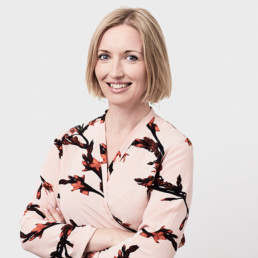
Written by Paulina Tervo
Co-Founder and Co-CEO at Lyfta; an immersive learning platform for educators.Her background is in documentary filmmaking and web production.
I’m holding a heavy camera in my arms, which are shaking from the sheer weight. It’s 35 degrees; hot, humid and I’m standing in the middle of the biggest slum in Dhaka, Bangladesh, filming a UK A-list celebrity who is crying and talking to the camera. We have just visited several homes in the slum, where we have met young mothers, who are still children themselves, who live in abject poverty and whose children are malnourished. My brief for the day has been to make the A-list celebrity cry in front of the camera, because that’s what will make people donate to the charity that I am doing the work for. I start crying myself, because of the absolutely devastating stories of hopelessness that we are telling, and because I have been told by the local staff that the families we filmed are not beneficiaries of their aid, and therefore will not be helped.
What this narrative was doing was problematic for many reasons. Not least because it reinforced the white saviour narrative, portrayed the poor as a helpless one-dimensional group who are only going to be saved by our charity. It also showed only one side of the story. What we didn’t tell was how the young mother might have been part of a women entrepreneur’s group, saving together to launch a business, or how she is a resilient and resourceful person. We didn’t humanise her, we victimised her, objectified her even.
I felt disgusted and embarrassed for being there. It was the first time I had ever taken an assignment like this, and it was absolutely going to be my last. It was clear to me that what we were doing would not bring about sustainable change. I realised that I wanted to tell stories that were empowering, and even if they had tragedy or difficulties in them, they would humanise and have hope.
A very different story
Fast forward 5 years, I am filming another young mother, this time in Helsinki, Finland. This is where I come from.
Habiba was a child when she came to Finland in the early nineties as a refugee from Somalia. To give you some background, in 2018 over 50% of Somalis in Finland were unemployed, and when it comes to women, that figure was even higher. Many Somali women become nurses or work in other caring professions. When Habiba told me that as a teenager she had been told by a school counsellor that she would be best off becoming a nurse, as that’s what most other Somali women do, she decided that wasn’t going to be her route. Her interest was in citizen activism and politics.
Habiba always knew she wanted her own career while also fulfilling her duty as a mum. By her mid-twenties, she was the proud mother of 7 children when the relationship with her husband broke down. Committed to her aims towards social justice and advocacy for others, she chose to become a city councillor and started to work for her community, to help young people who faced institutional racism which put them at risk of marginalisation. It hasn’t been easy for Habiba to do what she is doing, she faces constant hate speech and racial abuse.
The story we ended up telling about Habiba, like the other stories on the Lyfta platform, is emotionally powerful, yet hopeful, inspiring and empowering. Habiba is an incredibly resilient and positive person, reflective and committed and provides a powerful role model for us all. She makes us see that despite adversities, we can still follow our dreams.
Habiba’s story has now been seen by thousands of children and teachers in the UK and Finland. For many people, she is an incredible role model, and for others, meeting her has given them a window into someone’s life, whom they might otherwise never have met. They would have heard a story that showed them a new perspective.
Habiba’s story is one of many human stories featured in Lyfta’s learning environments called storyworlds. At Lyfta our mission is to share beautiful human stories from around the world to better understand ourselves, each other and our future – as individuals, as communities and as an entire planet.
Storytellers and media outlets have a big responsibility as to how we tell stories, because stories shape our world and shape perspectives and attitudes. So it really matters how they are told. The world is nuanced, complex and beautiful and there are a million ways of telling someone’s story. At Lyfta, we choose to tell stories that humanise people.
What is Lyfta?
Lyfta is an award-winning teaching platform made up of interactive 360° spaces and soundscapes of real homes, workplaces and environments from around the world. Students are invited to explore, unlock rich media content, and get to know real people through powerful and inspiring short films.
The resources are ideal for teaching a range of subjects, skills and values and the UN SDGs. The ready-made lesson and assembly plans cover a range of vital themes such as sustainability, wellbeing, human diversity and compassion, and are ideal for nurturing skills and values such as empathy, resilience, and critical thinking.
Lyfta offers free training and trial access – find out more at www.lyfta.com/training
Taking an intersectional approach to understanding mental health and self-identity

Written by Hannah Wilson
Founder of Diverse Educators
During my time serving as a school leader, I cared deeply about our culture and ethos. We spent a lot of time reflecting on our school values, and how they shaped our inclusive behaviours. As a school we were committed to diversity, equity and inclusion, at the same time as being committed to mental health and wellbeing – both underpinned our strategic vision and our approaches for our curriculum, our staffing, our policies and our practices. This intersectional approach to who we are, how we feel about ourselves and each other, our awareness of our place in the world as global citizens, created our sense of belonging as both individuals and as a community.
I now work independently – I am the Founder of Diverse Educators and I consult, coach and train with these two specialisms in mind. When I am commissioned to do a piece of work with a school, a trust, an educational organisation or training provider for one of these areas, I interweave the other focus back in as I find it hard to speak about one without reflecting on the other. For me this intersect is really important as we often consider mental ill health in isolation from one’s identity, and we need to remember that individuals with a protected characteristic are more vulnerable to experiencing mental health issues, as a result of how authentic and accepted they feel.
Various factors make up a person’s actual identity, including a sense of continuity, a sense of uniqueness from others, and a sense of affiliation based on their membership in various groups like family, ethnicity, and occupation. When we have a positive view of our identity within a group, we are more likely to relate well to other others in that group and feel positive emotions about ourselves. This social identity fulfils the psychological need for esteem from others.
Struggling with various parts of our identity is also natural and normal. It takes time to develop an identity or sense of self and the traits we desire to nurture in ourselves may be challenging. Not having a strong sense of self or struggling with identity issues can lead to anxiety and insecurity. Our sense of self comes from our self-esteem, something I worked on with many of my students over the 19 years I spent teaching and leading in schools. The value we place on ourselves creates a positive self-image which in turn creates our sense of self-worth. When we feel loved by others and by ourselves, we also feel trusted and accepted which boosts our self-esteem. A strong self-identity increases our self-confidence and enables us to assert ourselves and exercise good boundaries with our family, friends, and partner.
Mental health problems affect about 1 in 10 children and young people which can include depression, anxiety and conduct disorders, often as a direct response to what is happening in their lives. But what does the data tell us about children and young people and their race, their gender and their sexual orientation and the intersect with their mental health?
A significant risk factor for a mental health problem manifesting is the experience of race, religion or sexuality. Anyone experiencing a mental health problem should get both support and respect. However, for many people from Black, Asian and Minority Ethnic (BAME) communities this is still not the case. The reasons for this are complex but include systemic racism and discrimination as well as social and economic inequalities and mental health stigma. People from Black, Asian and Minority Ethnic communities living in the UK are more likely to: be diagnosed with mental health problems; be diagnosed and admitted to hospital; experience a poor outcome from treatment. The disproportionate impact of coronavirus on Black, Asian and Minority Ethnic communities has further highlighted the inequalities in the system and has made many people’s mental health worse at an already difficult time. Furthermore, research has found that children of Black, Asian and Ethnic Minority heritage are suffering disproportionate damage to their mental health, as a result of the pandemic than their white peers. There has been a large rise in anxiety, stress and self-harm in non-white under 18s.
Some questions to consider as a school regarding the intersect between race and mental health:
- How engaged are children and young people from black and minority ethnic communities in your mental health and wellbeing activities?
- What are the barriers which put young people from black and minority ethnic groups off from accessing mental health services in your context?
- How culturally sensitive are your mental health processes and services in being appropriate and acceptable to children and young people from diverse families?
Returning to the risk factors, we also need to consider the layers to our identity which are not always visible nor known. Young people establishing their self-identity do not always feel the psychological safety at home and at school to be out but one in every 25 Britons aged 16–24 years old identifies as lesbian, gay, or bisexual. Cross-sectional studies consistently report that sexual-minority young people have poorer mental health profiles than their heterosexual peers, including higher prevalence of self-harm and suicide attempts. The pandemic has exacerbated many existing dangers, and introduced a few new ones, in particular, social isolation may have been especially challenging for LGBTQ youth. They may have been quarantining with rejecting family-members and have lost contact with supportive social networks. The nature of quarantining means that these problems may have been invisible to the school. Even before COVID-19, LGBTQ youth were at higher risk for depression, suicidality, and tobacco, alcohol, and other drug use than their heterosexual peers. Moreover, this increased risk stems from increased rates of rejection, discrimination, and victimisation. During the pandemic, risk was further compounded by loss of relationships in school, clubs, or other community venues where LGBTQ youth find support and affirmation.
Some questions to consider as a school regarding the intersect between sexual orientation and mental health:
- How engaged are children and young people from the LGBTQIA+ community in your mental health and wellbeing activities?
- What are the barriers which put young people from the LGBTQIA+ community off from accessing mental health services in your context?
- How have you made efforts to address gender and sexuality-based inequities so that they might be appropriate and acceptable for children and young people who identify as being LGBTQIA+?
As our schools fully re-open and our support systems are mobilised once again, we need to consider how we can support our marginalised youth groups to rebuild their sense of belonging. Some ways we can do this:
- Recognising that representation matters and that we need to be intentional about the make up of our teams so that there is increased visibility of diverse role models in our schools.
- Reviewing school policies and practices for how inclusive they are in meeting the needs of all our children and young people so that they do not harm nor further alienate individuals with diverse lived experiences.
- Creating safe spaces for young people to explore their self-identity and to surface their lived experiences to be supported and signposted to appropriate interventions.
- Developing resources and peer advocacy programmes that will empower young people to nurture their own resilience whilst at the same time engage them in supporting others.
Which is why Diverse Educators are collaborating with Worth-It CIC on their Wellbeing Ambassadors Programme as we believe that by nurturing peer to peer relationships that we can build trust and increase feelings of belonging and connection for individual young people. The programme coaches them to develop the internal resources and strategies to learn how to develop positive relationships and positive support networks. Come and join us for our free webinars on April 27th to find out more.
Deepening and Demonstrating an Understanding of Diversity - A Governor’s Journey
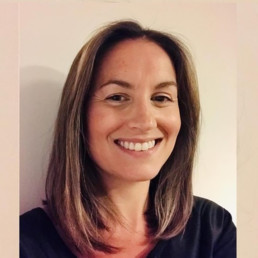
Written by Mair Bull
Former teacher and content writer for BBC Bitesize. Now works at Manchester Metropolitan University in the Curriculum and Rise teams.
When the pandemic hit, I had only been a governor for a few months. Therefore, I felt compelled during the lockdown to take advantage of the many free webinars and training sessions that became available as everyone flocked to zoom and other similar platforms.
I particularly enjoyed the sessions by Hannah Wilson and Diverse Educators – the recordings can be found here if you wish to check them out. I made notes about diversity, inclusion, decolonising the curriculum and specific ideas for governance around diversifying the board and recruitment – to name but a few!
The style of the sessions meant they felt approachable and empowering – normalising the discussions around race, culture, identity and disability. In fact, the sessions made it clear it was strange not to be challenging and questioning the current position within our schools. This was galvanised only a few months later when the world witnessed the death of George Floyd and the subsequent Black Lives Matter campaign.
Alongside these experiences, I was privileged to be part of a conversation about the importance of building a representative Drama curriculum in schools with the Royal Court Theatre, as part of my previous role with Open Drama UK. Subsequently, the network published a really useful document for teachers on building a representative curriculum, which I highly recommend exploring.
During the governors meetings in 2020, I slowly felt more emboldened to ask those questions that Diverse Educators encourages us to pose; I triggered conversations about text choices and our curriculum, about the diversity and inclusion of staff and the recruitment process to our governing board, plus many more. As Hannah has said several times, it is uncomfortable to ask those questions, but they need to be posed. The status quo needs challenging.
In December 2020 we had an Ofsted training session for governors across the Trust, and I was fired a question about the Equality Act in a mock-interview set up. I felt uneasy answering in front of a large number of senior leaders and hugely experienced governors, but I was able to outline what we had achieved in school, the provocations we had discussed, and our plans for the future.
Then in March 2021, I experienced my first real Ofsted visit (virtual) as a governor. In my interview the importance of all that layering of knowledge and small but regular confrontations of the norm, felt acknowledged, important and relevant. I was able to talk about the value of diversity, inclusion, recruitment and curriculum with more confidence and power than I would have been able to a year ago.
Like every school, we still have a long way to go but it is important to acknowledge the evolution and development from where we were before. I am really proud of the lovely school where I am a governor and the crucial progression that has been made on the journey out of special measures. It is important that I am educated and empowered to keep challenging the school to be the best version of itself as it can be. I am only small cog, but we as governors do have the power to enact change and empower others, steadily but positively.
I am really pleased to say that we are now in a position to recruit new governors and are of course, determined to broaden the diversity of the board. If you are interested in a governance role in the Cheshire region please get in touch.
Empowering Change Through Education
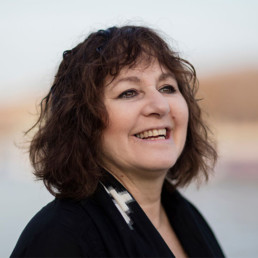
Written by Leslee Udwin
Activist, filmmaker, UN Women for Peace awardee, and Founder and Executive Chair of Think Equal, a global non-profit.
‘No one is born hating another person because of the colour of his skin, or his background, or his religion. People must learn to hate, and if they can learn to hate, they can be taught to love, for love comes more naturally to the human heart than its opposite’. Nelson Mandela
There is a profound chasm in our global education system – a missing dimension. How can we teach our children numeracy and literacy, yet not how to become loving, inclusive and empathetic human beings? In fact, even the most superficial glimpse of the values which bombard our children’s senses evidences a reality that needs to be effortfully countered if we are to disrupt the pretty archaic views of stereotypes which abound. Discrimination is the rule and at Think Equal we are determined to make it the exception.
So how do we educate inclusion, self-esteem (for all) and celebration of diversity? In fact, it’s so simple that if we continue to ignore it and neglect to implement the programmatic tools that exist, we should hang our heads in shame.
It’s not rocket science, it’s neuroscience. We work with our children as partners to co-create pro- social neuropathways in their developing brains. This is why our programmes work exclusively with children aged 3-6. Quite simply put, this is when the brain is ripe with neuroplasticity. By focusing on this specific age group, we can co-create pro-social behaviours with the child, and empower long-term change.
Embedding Social and Emotional Learning competencies and skills at an early enough age to be of material foundational value, is the key to unlocking the power of human kindness, inclusion, and connection, which is all too relentlessly overshadowed by divisiveness, sexism, racism, and deeply embedded bigotries.
We are all aware of the issues that are plaguing society, and now is the time to act on this awareness by implementing social and emotional learning programmes, such as that which Think Equal has designed for both classrooms and homes, at a global scale.
Think Equal has developed an innovative early years SEL programme which tackles the root cause of discrimination and violence from the outset. With input from world education and though leaders, such as Sir Ken Robinson, the Dalai Lama and the Yale Centre for Emotional Intelligence, we have designed an evidence-based, scalable, and replicable SEL programme. Think Equal’s mission is to actively transform the fabric of society through this curriculum: from a world that is apathetic, to one that is empathetic, from a society of passive living, to one of active empowerment.
We have created a comprehensive set of children’s books, one for every week of the Think Equal curriculum, accompanied by step-by-step teaching plans. We set clear outcomes for each week of the Think Equal programme. These include showing responsibility towards our planet and acknowledging the interconnectedness of all living creatures. We actively draw from the UN’s Sustainable Development Goals to expand the breadth of existing social and emotional learning programmes.
To celebrate International Women’s Day, I had the privilege of speaking with Hannah and Isa about how my work and Think Equal’s disrupts and challenges the patriarchy. One week later, the UN’s statistic, citing that 97% of women aged 18-24 in the UK had been sexually harassed, went viral. This study, drawn from the UN Women UK’s Safe Spaces Now project, resurfaced in light of the tragic disappearance of Sarah Everard. Claire Barnett, executive director of women UK, writes that ‘This is a human rights crisis. It’s not enough for us to keep saying ‘this is too difficult a problem for us to solve’ – it needs addressing now”.
This is precisely what Think Equal’s social and emotional learning programme does: starting at an early age, we anchor values of gender equality and respect in children’s mindsets. Think Equal urges you to recognize the genuine power that bringing teachers together can have in catalysing change. Teachers are the backbone of our society. It is by providing them with the training and distribution of Think Equal materials that we can really start to make a difference on our own doorstep, and as global citizens.
If you missed our chat on International Women’s Day, you can learn more about how Think Equal is leading the change in our global education system by registering for our webinar.
Now, this change can also happen with the help of parents across the globe. At the start of the Covid-19 pandemic, Think Equal worked hard to reach families in their homes. You can now order our free SEL home kits online.
Finally, you can help us catalyse this change by donating to Think Equal today. A donation of just 2 pounds will provide a child with the positive life outcomes to make a real difference in society.
Why taking part in School Diversity Week can help LGBT+ young people struggling with mental health
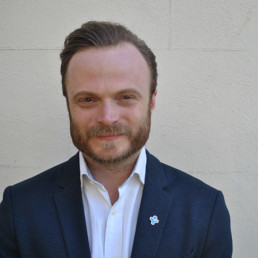
Written by Dominic Arnall
Chief Executive of Just Like Us, the LGBT+ young people's charity.
The pandemic has hit us all hard – whether it’s through job losses, being furloughed, losing loved ones, loneliness or our lives simply turning upside down. However, new independent research by Just Like Us has found that young people who are LGBT+ (lesbian, gay, bisexual or trans) are struggling significantly more.
LGBT+ young people are twice as likely to feel lonely and more than twice as likely to be worrying daily about the state of their mental health.
On top of this, one in four (25%) are facing daily tensions in the place they’re living and seven in 10 (68%) said their mental health has worsened during the pandemic, compared to just half (49%) of young people who aren’t LGBT+.
Sadly, Just Like Us’ independent research found what we suspected to be true when the pandemic began – LGBT+ young people are facing far more challenges than their peers and this is having a devastating impact on their mental health. And we found that LGBT+ young people who are also Black, disabled and/or eligible for free school meals face even worse mental health.
While we’ve all had a tough time not being able to see our loved ones and socialise like we used to, many LGBT+ young people are having to cope with living with families who may not accept or understand them, while also being cut off from their usual support networks or safe spaces where they won’t be judged for who they are.
School, while it may have been virtual for much of the pandemic, can be a fantastic source of support for young people. Sadly, for pupils who are LGBT+, school still often isn’t a place they are able to feel safe, welcome or happy being themselves.
Our research shows that half (48%) of 11 to 18 year olds say they have received little to zero positive messaging at school about being LGBT+ in the last 12 months. One in five (18%) young people say they have received no positive messaging from their school about being LGBT+, which suggests that a significant number of schools are not taking action to meet Ofsted requirements of preventing homophobic, biphobic and transphobic bullying.
It’s a real shame to see that Section 28 is still having such an impact on LGBT+ young people’s experiences of school. As adults, we could be forgiven for thinking that things have moved on – after all, we have far more legislation to protect us these days – but education still has a long way to go in being LGBT+ inclusive.
No child should feel scared to be themselves at school. And pupils in primary schools should know that there’s no shame in having LGBT+ parents or families either. Growing up bisexual, if I’d known and could’ve seen that my school accepted me, my journey would’ve looked very different.
We know that teachers and school staff are doing an incredible job in an overwhelmingly challenging environment. That’s why we are doing everything we can at Just Like Us to make taking the first step to LGBT+ inclusion in education as easy and accessible as possible.
This summer is School Diversity Week. We’re asking all primary schools, secondary schools and colleges to please sign up to take part. It’s free, you’ll get a toolkit of teaching resources for all key stages, across the curriculum, and celebrating means your pupils will know they can be safe, happy and accepted at your school.
We’ll be running free online masterclasses that you can stream, there’ll be Rainbow Friday where pupils can dress up as a colour from the Pride Progress flag, and we have many new resources for staff to inspire your celebrations. LGBT+ young people are facing disproportionate mental health challenges and need to know who they are is not something to be ashamed of – please sign up for School Diversity Week and celebrate with us and thousands of schools and colleges taking part 21-25 June.

